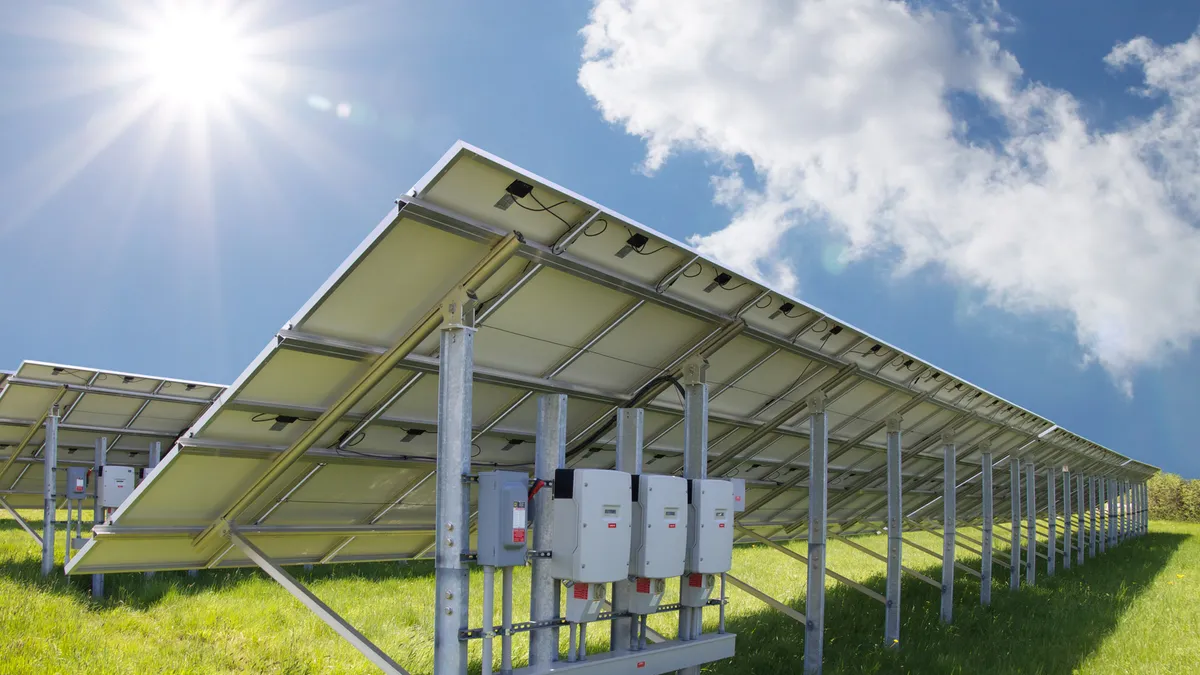Dive Brief:
- North Carolina Representatives have advanced legislation to modernize the state's energy policies after releasing details Monday. House Bill 589 aims to create a competitive bidding process for solar developers and put in place a solar leasing program allowing customers to work with private parties.
- The measure was advanced by two committees before heading to the full House for a vote. It passed easily on second reading with a vote of 108-11.
- The Senate is expected to consider the bill next week, but Charlotte Business Journal reports the measure may face more scrutiny in the upper chamber.
Dive Insight:
On Monday, North Carolina embarked on an ambitious path to reform the state's energy platform, particularly its solar policies. The bill is advancing quickly after moving through two House committees on Tuesday and a vote on Wednesday. While it may be a higher bar to get through the Senate, the Journal reports Gov. Roy Cooper has endorsed the measure.
N.C. Sustainable Energy Association's Allison Eckley told the news source that the group hopes to see final action on the bill next week.
The legislation proposes a competitive bidding process for independent solar developers that lawmakers say will help keep costs down by using market-driven solutions to to develop renewable projects. The bill would also create a Green Source Rider Program to allows large utility customers to take control of their energy purchasing.
Fundamentally, the bill will require the state to reform how it implements the federal Public Utilities Regulatory Policy Act, which mandates utilities buy renewable energy from independent developers. Under the latest iteration of the bill, utilities will propose a program with regulators that will procure renewable energy at a competitive rate.
Utilities can purchase the necessary amount through third parties, or construct and own the required amount of renewable generation. Essentially, the measure will allow utilities to compete and bid against third party developers, and will likely incite controversy. Duke had proposed a similar measure last year, a year after the North Carolina Utilities Commission rejected it two years ago.
Lawmakers are also proposing to create a solar leasing program allowing a competitive market to install renewable energy with competitive pricing to encourage the development of rooftop and other solar energy projects through community and third-party leasing programs.
Under the bill, utilities will file revised net metering rates — the preferred compensation scheme for rooftop solar customers that usually credits them at the retail rate — but only after a cost-and-benefits analysis is completed. HB 589 will also grandfather existing solar customers under the original rates, but only for 10 years or January 2027. The systems are also capped to 1% of a utility's retail peak demand.
The North Carolina legislation comes after the state's Energy Policy Council requested lawmakers re-evaluate the state’s energy policy, including solar power policies. According to the News & Observer, the legislation could slash costly up-front expenses for customers who want to go solar, costs that can run from $10,000 to $20,000.














